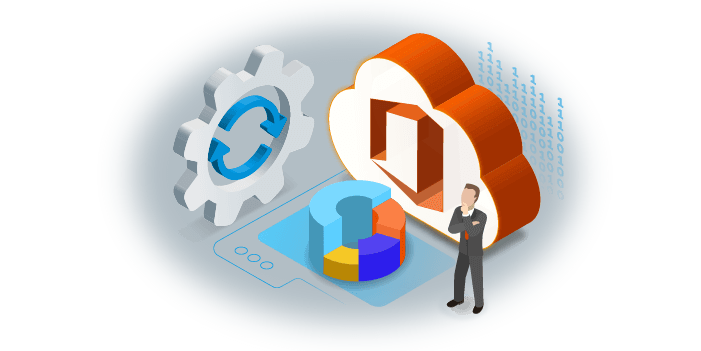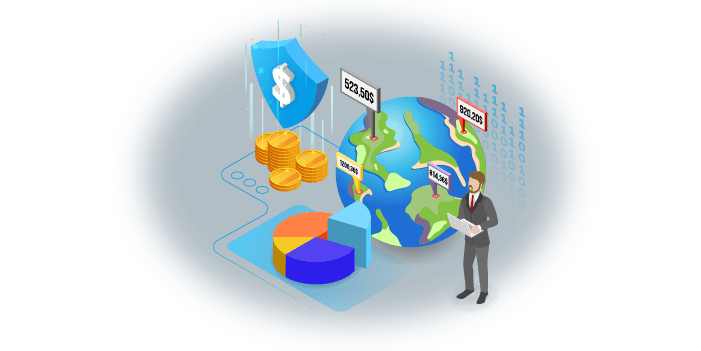It’s certainly no secret that we are in an era of digitization and transformation. The digital revolution has been ongoing throughout this entire century and a sizable part of the last. However, it’s within the last ten or so years where digital transformation has pushed on as enterprises seek to elevate their digital economic status.
 Sink or swim
Sink or swim
As with most things, there is a huge amount of trial and error at the beginning – implementing a coherent digital transformation strategy is no different. Innovators brave enough to challenge the status quo, throw the dice, and the stakes are high. Those succeeding are called visionaries, catapulting organizations into a new area, whereas the unsuccessful suffer the consequences.
If I had to make a bet, I would have put money on there being far more failures than successes.
A cautionary tale
Published at the end of 2018, A Forbes technology council article, compiled by a panel of experts, discusses the tech industry’s biggest challenges for 2019. Listed seventh is the digitalization of enterprise-level companies. Furthermore, Expert Blake Morgan also talks about past enterprise failings concerning digital transformation. She explains that 70% of digital transformations fail.
Spanning across 2011 to 2014, top organizations such as Ford, Procter and Gamble, and GE all failed at digital transformation projects. Although these top organizations bounced back with successful digital transformation projects later, they were left out of pocket and embarrassed at the time.
Understandably, large enterprises take heed and proceed with caution, reluctant to throw their hard-fought company reputation into the unknown despite the attractive plethora of technological innovations on sale. However, standing still is also not an option or risk extinction altogether. Timing and a digital strategy born out of organizational key objectives are crucial.
Microsoft MVP Christian Buckley explains succinctly:
 “As technologists, we often jump to technical solutions before we fully understand what is working today for our organization. Our excitement over new features and capabilities can blind us to the real priorities of our organization, and what to optimize first. Change will undoubtedly have an impact on your business, so it’s important that you take the time to understand the current state of things and estimate the impacts of the future state.”
“As technologists, we often jump to technical solutions before we fully understand what is working today for our organization. Our excitement over new features and capabilities can blind us to the real priorities of our organization, and what to optimize first. Change will undoubtedly have an impact on your business, so it’s important that you take the time to understand the current state of things and estimate the impacts of the future state.”
Rise in the digital economy
Almost a year on, we have another set of predictions and another Forbes article. Gil Press discusses the Top 10 Tech predictions for 2020 based on research conducted by IDC.
In contrast to the 2018 Forbes technology council article, IDC predicts organizations will move from being overly cautious to innovative. By 2023, we can expect over 50% of ICT budget allocations being used for digital transformation and innovation – a rise of 27% from 2018. Although the increase is spread over three years, 2020 would seem to be the tipping point towards a less cautious approach.
 Furthermore, it’s also predicted digital innovation will continue to rise. Two-thirds of enterprises will create software at a constant rate with daily code deployments. 90% of newly created apps will be geared for the cloud, and over 80% of code creation will be externally sourced. In this instance, governance and compliance would be more business-critical than ever.
Furthermore, it’s also predicted digital innovation will continue to rise. Two-thirds of enterprises will create software at a constant rate with daily code deployments. 90% of newly created apps will be geared for the cloud, and over 80% of code creation will be externally sourced. In this instance, governance and compliance would be more business-critical than ever.
Other honorable mentions include:
Every Enterprise a Platform
60% of the G2000 will have a digital developer ecosystem by 2023. Half of those enterprises will drive 20%+ of digital revenue through their digital ecosystem/platform.
Connected Clouds
70% of enterprises will integrate cloud management by 2022.
Trust
50% of the G2000 will name a Chief Trust Officer by 2023 overseeing departments such as security, finance, HR, risk, sales, production, and legal.
The complete article is based on IDC’s research predicting that by 2023, 52% of global GDP will derive from digitally transformed enterprises. To what extent those enterprises will be transformed, we ‘ll have to wait and see, but if decision-makers prioritize organization necessity in their digital transformation strategy, they have every chance to, at the very least, keep pace in a rapidly evolving digital world.
Predictions are not certain, though. It will be interesting to see what twists and turns 2020 will provide along the way.
Digitally transform and stay in control of your Microsoft collaboration platforms
At Rencore, we provide award-winning solutions that help organizations digitally transform and stay in control of their collaboration platforms. Our offerings range from code-quality analysis, migration and modernization, and continuous cloud monitoring. Click the button below to watch our free webinar with Björn Erkens and Microsoft MVP Samuel Zuercher: Your SharePoint & Office 365 migration roadmap in a day.




